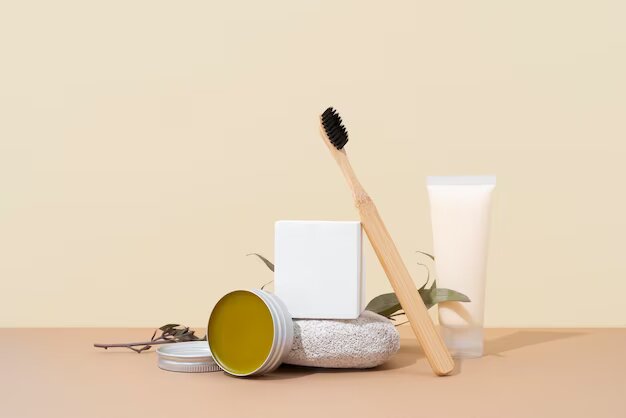Oral hygiene is an essential part of our daily routine, and choosing the right toothpaste is crucial for maintaining healthy teeth and gums. However, with increasing concerns about the impact of our daily habits on the environment, many people are now looking for eco-friendly alternatives to traditional toothpaste brands.
Put together by Tutu’s Green World, here are some of the benefits of using eco-friendly toothpaste for both your teeth and the planet.
Natural Ingredients
Eco-friendly toothpaste is made with natural ingredients that are safe for your teeth and the environment. Traditional toothpaste brands often contain harsh chemicals such as sodium lauryl sulfate, triclosan, and artificial colors and flavors. These chemicals can be harmful to both our health and the environment. In contrast, eco-friendly toothpaste is formulated with natural ingredients that are gentler on our teeth and do not harm the environment.
Reduced Plastic Waste
Traditional toothpaste tubes are made of plastic and are not recyclable, which leads to a significant amount of plastic waste. Eco-friendly toothpaste brands offer alternatives to plastic packaging, such as biodegradable or recyclable materials. Some brands even offer toothpaste tablets that can be purchased in refillable glass jars, eliminating the need for any plastic packaging at all. By choosing eco-friendly toothpaste, you can significantly reduce your plastic waste and contribute to a more sustainable future.
Ethical And Sustainable Sourcing
Many eco-friendly toothpaste brands prioritize ethical and sustainable sourcing practices. For example, some brands use bamboo or other renewable resources to create their packaging. Others use ingredients that are sourced sustainably and ethically, such as organic coconut oil and aloe vera. By choosing eco-friendly toothpaste, you can support brands that are committed to sustainability and ethical sourcing practices.
Cruelty-Free
Many eco-friendly toothpaste brands are also cruelty-free, meaning that they do not test their products on animals. This is an important consideration for those who are concerned about animal welfare. By choosing a cruelty-free toothpaste, you can be sure that you’re not contributing to animal cruelty in any way.
Better For Sensitive Teeth
Eco-friendly toothpaste brands often offer options that are formulated with natural ingredients that are gentle on sensitive teeth and gums. This means that if you have sensitive teeth, you can find a toothpaste that won’t cause discomfort or irritation. Additionally, many eco-friendly toothpaste brands offer options for people with specific oral health concerns, such as gum disease or bad breath.
Fluoride-Free Options
Many traditional toothpaste brands contain fluoride, which is known to be harmful if ingested in large quantities. Eco-friendly toothpaste brands often offer fluoride-free options that are safe for both adults and children. Additionally, some eco-friendly toothpaste brands offer options that are specifically formulated for children, with flavors and packaging that are appealing to kids.
Health Benefits
Eco-friendly toothpaste can also offer health benefits beyond just being better for the environment. Natural ingredients can be gentler on the teeth and gums, and some can even help to whiten teeth and freshen their breath. Additionally, by avoiding harsh chemicals, eco-friendly toothpaste can help to promote overall health and well-being.
In conclusion, choosing eco-friendly toothpaste is a simple and effective way to protect your teeth and the planet. With natural ingredients, reduced plastic waste, ethical and sustainable sourcing, cruelty-free practices, options for sensitive teeth and fluoride-free options, and potential health benefits, eco-friendly toothpaste is a great choice for anyone looking to make a positive impact on the planet and their own health. So why not switch to eco-friendly toothpaste today and start protecting your teeth and the environment?
Read Also:
- 5 Dental Hygiene Tips for a Healthier Smile
- Is It True That Good Oral Hygiene Can Reduce Cancer Risk?
- 5 Little Changes That Can Make Your Teeth-Brushing More Effective























